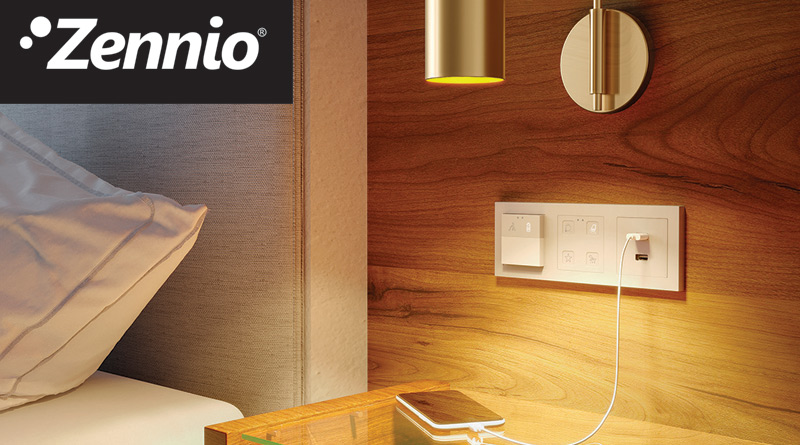The last few years has been one of the hardest periods, if not the hardest, for the hospitality industry worldwide. Lockdowns, staffing issues, war on the European Continent and unprecedented energy costs have all put pressure on the on the industry.
When looking at reducing operating costs in a hotel, optimization comes as a very handy word; optimize labour, optimize training, optimize energy, optimize maintenance…but we many times fail to address the way to achieve this “optimization”.
As in life, information is the starting point to approach the problems we aim to solve, so gathering information about what is going on in our building becomes essential to optimize the way the building – our hotel – works. Once we have the information, we need to actually control those variables to be able to change them, and this is where technology can really make a difference.
Starting with the rooms, sharing information between the hotel PMS (such as if the room is booked for that day or if the guest has already checked-in) and the HVAC control system (room occupancy for example) help reduce energy waste to a minimum as the AC will only turn On when the room is occupied and the guest is checked-in, but not if the hotel staff gets in the room before the guest has arrived to the hotel. This can be applied to all room controls (lighting, TV, sockets…) but also to common areas, and bearing in mind energy accounts for 3 to 6% of an average hotel running costs, eliminating energy waste can really make a difference.
Following on to the hotel staff, housekeeping is many times overlooked with teams left to wonder through the hotel looking for rooms to clean.
Monitoring “Make Up Room” and “Do Not Disturb” signals (MUR/DND) in a centralised system help increase the overall efficiency as teams can be assigned to those parts of the hotel that require more immediate attention. Combining this information with room occupancy and access controls enhance guest privacy and provide deeper knowledge of how our hotels work, for example giving information on how much time it takes to clean each room.
Another big cost centre control systems help reduce drastically is Maintenance, as these solutions allow the use of predictive and preventive policies. Sorting issues before they become fatal or even before they appear decreases the amount spent in replacing broken units (for example AC units) but also minimizes the risk of refunds to guest because things are not working or because there has been an AC leakage nobody noticed before.
A robust long-lasting control system combined with a Building Management System (BMS) that integrates with our hotel’s PMS is vital to get to know how our building operates to optimize all those little things that end up costing several thousand every year.
These are the type of solutions Zennio develops and delivers in over 100 countries, helping hotels all around the world become more efficient and sustainable and supporting all projects locally and remotely to make sure everything works every day.

